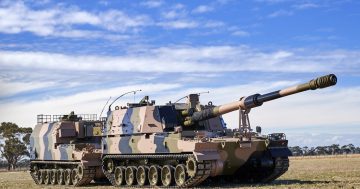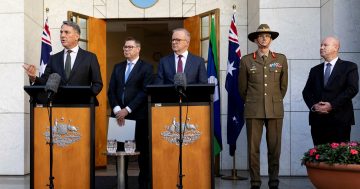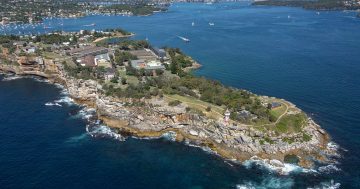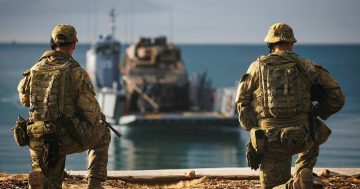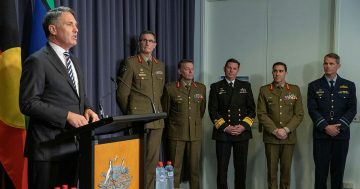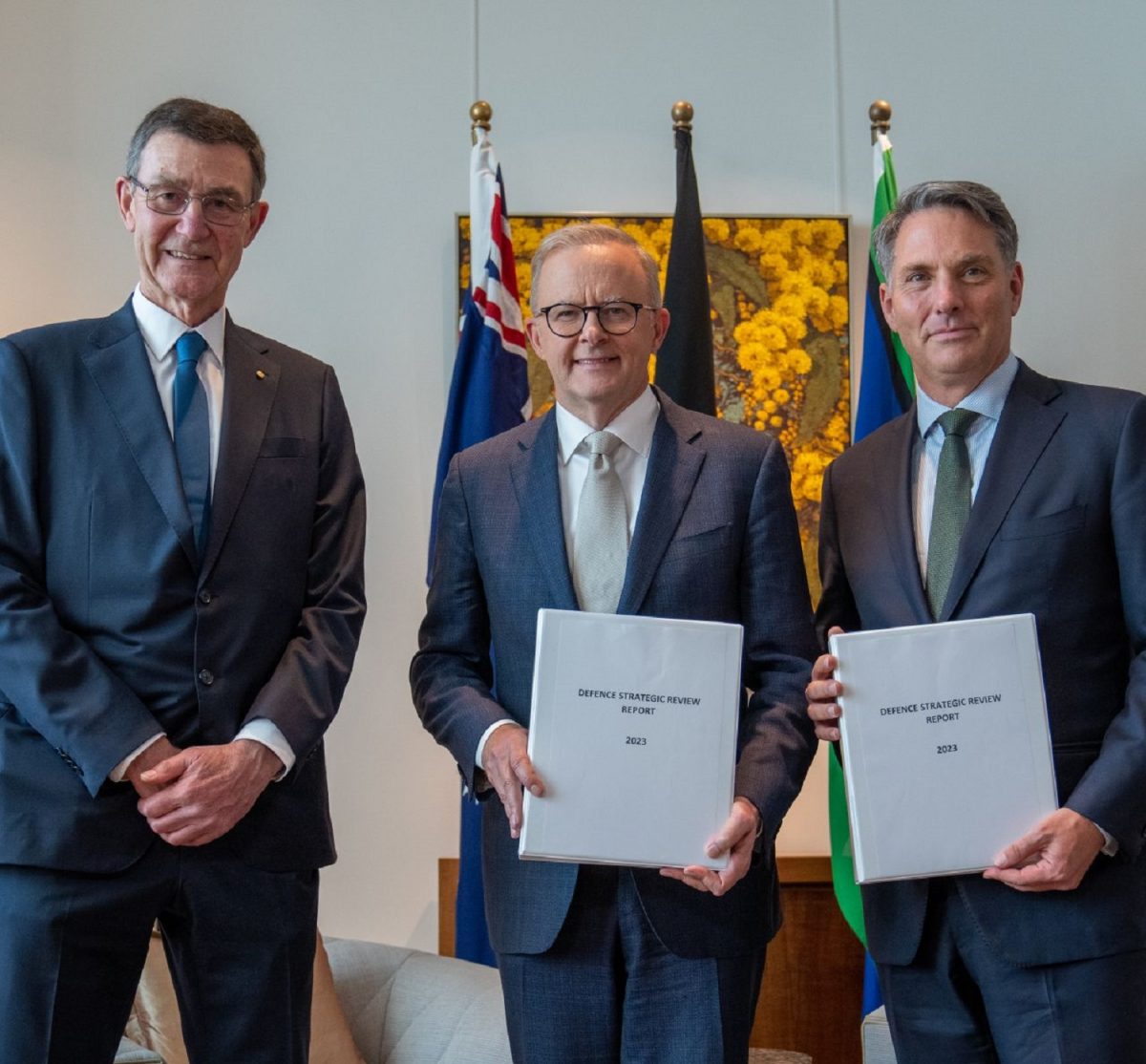
Former Chief of Defence Air Chief Marshal Sir Angus Houston (Ret’d) presents the Defence Strategic Review to Prime Minister Anthony Albanese and Deputy Prime Minister Richard Marles. Photo: PMO.
It wasn’t tied up with a big red bow or accompanied by flowers or chocolates, but the Labor Government’s Defence Strategic Review (DSR) was delivered on Valentine’s Day to Prime Minister Anthony Albanese, and Deputy Prime Minister and Defence Minister Richard Marles.
The DSR was established in July last year, and has been independently authored by former Gillard Government Defence Minister Stephen Smith and former Chief of Defence Force Air Chief Marshal (Ret’d) Sir Angus Houston. It was initiated by the Albanese Government to assess the previous government’s capability procurement plans and proposed force structure and force posture against current and projected geopolitical and capability threats in the Indo-Pacific region and beyond.
The DSR process involved more than 150 engagements with Defence officials, Australian Defence Force personnel, defence industry, national security think tanks and academics, representatives from the states and territories, and interest groups. It also received more than 360 submissions from the general public, interested parties, organisations, and state and territory governments.
“The Defence Strategic Review will help prepare Australia to effectively respond to the changing regional and global strategic environment and ensure Defence’s capability and structure is fit for purpose and delivers the greatest return on investment,” Prime Minister Albanese said in a statement.
Deputy Prime Minister Marles added: “The Defence Strategic Review is an ambitious and extensive examination of our strategic circumstances and will underpin our Defence policy for decades to come. Australia must be resolute in its responsibility to safeguard our region and keep adversaries further from our shores.”
Mr Marles thanks the architects of the report “for their dedication and commitment to the task, and producing a body of work which will inform key decision making for government”.
The DSR is expected to consider several big-ticket items across all three services, as well as key issues surrounding ADF personnel numbers, Defence infrastructure, base resilience, sovereign fuel supply holdings and assurance, and whether the depth of the ADF’s ammunition magazines is sufficient.
While most observers and commentators aren’t expecting any surprise major new capability acquisitions or cancellations from the review, some project schedules will likely be accelerated while others are slowed or deferred, some program numbers will likely be adjusted, and training capacity will need to be increased across the board.
Some of the major projects expected to be reviewed include the Australian Army’s Projects LAND 400 Phase 3 Infantry Fighting Vehicle and LAND 4503 Boeing Apache attack helicopter and the proposed LAND 4100 Phase 2 Land-Based Anti-Ship Missile capability.
Decisions on the Royal Australian Air Force’s Project AIR 6000 Phase 7 requirement for an additional squadron of Lockheed Martin F-35A fighters and whether or not its Boeing F/A-18F Super Hornets will be retained are also expected to feature, as is the future of the DEF 6114 MQ-28A Ghost Bat uncrewed combat aircraft program. Key decisions also loom on the successful contractors for the JP 9102 Sovereign Satellite Communications (SATCOM) and AIR 6500 Phase 1 Integrated Air and Missile Defence (IAMD) programs.
For Navy, the Projects SEA 5000 Hunter class frigate and SEA 1180 Arafura class Offshore Patrol Vessel (OPV) programs have both experienced delays and may see their schedules and hull numbers reviewed, while a decision on the successful tenderer for the SEA 5012 Tranche 1 & 2 Integrated Undersea Surveillance System (IUSS) is also due.
The government will consider all of the recommendations in the DSR and will decide on how to proceed in the coming months.











